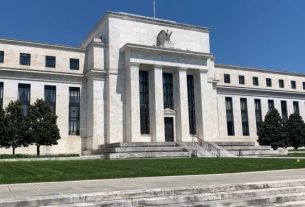The Bank of Israel has once again raised the national interest rate in its relentless effort to curb the country’s steepening inflation rate. The bank increased the rate by another .25% to 4.75%, marking the tenth consecutive raise in just over one year. This surge brings the interest rate to its highest level since 2006.
The decision to raise interest rates comes as inflation in Israel continues to soar with little sign of stopping. Various components of the Consumer Price Index (CPI) have experienced significant inflationary pressures, indicating a need for urgent action. Last month, the Bank of Israel raised the interest rate by 0.25% to a steep 4.50%.
Explaining their decision, the Bank of Israel stated, “Economic activity in Israel is at a high level, and is accompanied by a tight labor market, although there is some moderation in a number of indicators. Inflation is broad and remains high. Therefore, the Monetary Committee decided to increase the interest rate. The interest rate path will be determined in accordance with activity data and the development of inflation, in order to continue supporting the attainment of the policy goal.”
The Bank of Israel noted that, at 5%, inflation in Israel over the last year is well over its 1-3% target range, though the rate of growth is lower than last year. “Looking at the past 6 months, and even more so over the past 3 months, the pace of inflation is lower than the year-on-year inflation,” the bank stated. “Inflation expectations and forecasts for the first year from all sources are around the upper bound of the target range. Expectations derived from the capital market for the second year onward are all within the target range.”
The Bank also noted that Israel’s economy is still performing well, despite its inflationary issues. ”Economic activity in Israel remains strong, but some economic indicators point to a moderation in activity. GDP grew by 2.5% in annual terms in the first quarter, a relatively high pace once the temporary effects of changes in vehicle taxation are omitted. The labor market remains tight, and in a full employment environment, but the job vacancy rate is in a downward trend,” it stated.
While the bank’s repeated decision to increase its interest rate aims to stabilize the economy, the increase will undoubtedly impact thousands of mortgage holders.
On Sunday, Bank Hapoalim announced that it would work to absorb the interest rate increase for one year in an effort to protect its customers from the financial burden. This is the second time Hapoalim has made such a move, with the first being in January.
Ahead of today’s announcement of the interest rate increase and the lack of growth engines in the state budget, Dubi Amitai, head of The Israeli Presidency of Business Organizations, made an urgent appeal to the chairman of the finance committee. “It’s time for you to wake up – there should be an urgent discussion in the committee on the causes of inflation and the lack of government activity in curbing it. The Israeli government has left the governor of the Bank of Israel isolated in the battle against inflation and left the budget without engines of growth,” he said.
“It’s time for you to wake up – there should be an urgent discussion in the committee on the causes of inflation and the lack of government activity in curbing it. The Israeli government has left the governor of the Bank of Israel isolated in the battle against inflation and left the budget without engines of growth.”
Dubi Amitai
“Unfortunately, the data regarding the growth of the Israeli economy, as well as regarding the inflation levels, are overwhelmingly skewed to the negative side. I call on the Israeli government to wake up from its slumber and join the Governor of the Bank of Israel who remains alone in the fight against inflation,” Amitai added.
OECD report on Israeli economy advises Bank of Israel to be cautious
On the international front, an Organization for Economic Cooperation and Development (OECD) report on Israel’s economy, released last month, advised caution on the part of the Bank of Israel. The report emphasized the need to maintain a tight monetary policy stance due to inflation exceeding the target range and robust domestic demand. It also highlighted the bank’s intention to determine the pace of future interest rate hikes based on inflation and activity developments.
The OECD report suggested that if underlying inflationary pressures become more pronounced, the central bank may consider actively reducing its balance sheet in conjunction with further policy rate increases. This indicates the bank’s willingness to employ various strategies to tackle rising inflation effectively.
The impact of these interest rate hikes on the overall economy remains a topic of concern and debate among experts. As mortgage repayments become more burdensome, households may face additional financial stress. The Bank of Israel will need to carefully monitor the situation, ensuring that its actions strike the right balance between combating inflation and supporting economic stability.
As the Bank of Israel maintains its firm stance against rising inflation, the nation watches eagerly to see if these measures will yield the desired results and restore economic equilibrium.


